TURKEY IS ONE OF THE SAFEST AND THE MOST ATTARACTIVE TOURISTIC COUNTRY IN THE REGION.
Dear Colleagues, Dear Students!
The European Workshop on Renewable Energy Systems (EWRES) aim to be an independent academic forum for the clean energy researches following the technical, social, economical and environmental needs of the European Community for the cutting-edge renewable energy explorations. Within that context, the present and future perspectives on the renewable energy problems are discussed by the scientists and the advanced courses on the multidisciplinary energy topics are presented to the students by the European experts. The workshop, itself, does not only include the presentations of the participating scientists but also covers some special invited lectures on wide ranges of renewable energy problems.
The driving force for the renewable energy systems is the broad application areas which enable the most efficient carbon-free energy solutions. Because of these areas, the renewable energy explorations have a number of different resources from different faces of nature namely, waves, wind, sun, plants, natural vibrations, etc… Therefore an interdisciplinary approach is required for the design and implementation of the renewable energy systems. In fact, one should be aware of at least thermodynamics, statistical physics, fluid dynamics, electric machines, control theory and practise, networks, dynamics, mechanics, electromagnetic field theory, sociology, politics, philosophy, solid state physics, mathematics, biology for many of the energy explorations. Therefore the target of this workshop is to inform the students (PhD, MSc and outstanding undergraduate) who work on energy issues in order to assist their studies and gather different academic groups and experts all over the Europe to found a forum to make joint studies and refresh their mind to solve the scientific problems in that media.
EWRES will be the first event which introduces the principles of the “decent energy solutions to the generations”. The main steps to arrive at a decent energy solution will be discussed by the experts in that manner. The authors of the high-qualified presented papers will be invited by the scientific committee of the workshop to prepare the extended version of their presentation and to submit it to the very highly prestigious SCI-covered journal,
-Energy Conversion and Management (ECM),
with a letter to the Editor that this paper has been recommended by the scientific committee of the EWRES for submission to ECM in a regular issue. The paper will then undergo regular journal peer-review to be published. Same peer-review procedure will be done in order to publish the selected papers in
– International Journal of Renewable Energy Research (IJRER).
The workshop includes a number of social and cultural activities in addition to the research and teaching during 14 days. Visiting the different historical places of Turkey, listening and seeing Turkish music & dance can be mentioned in that case.
I would like to invite everyone who works on the renewable energy systems to this comprehensive international event covered by the ERASMUS Intensive Programme. I believe that your contributions will shed a light on the improvement of much efficient energy solutions for future generations and assist the ERASMUS students to learn hot renewable energy topics as well as the general introduction.
Assoc. Prof. Dr. Erol KURT
Coordinator of EWRES – ERASMUS Intensive Programme Project,
Head of the Organizing Committee,
Gazi University,
Faculty of Technology,
Department of Electrical and Electronics Engineering,
06500 Teknikokullar ANKARA TURKEY
E-mail: ekurt@gazi.edu.tr; ewresinfo@google.com
WORKSHOP TOPICS
• Solar Collectors : Design, Application, Control systems, Driving Circuits, Control Techniques, material research for tubes, reflectors, efficiency, policies&strategies, public awareness&education.
•Fuel cells : Design, Driving Circuits, Application, Control systems, material research for membranes, efficiency, policies&strategies, public awareness&education.
•Geothermal energy: Design, Application, Control systems, geographic survey, efficiency, policies&strategies, public awareness&education.
•Hydro-energy : Design, Application, Control systems, policies&strategies, strategic outlines, efficiency, public awareness&education.
•Hydrogen energy: Hydrogen production, materials, electrolysis, chemical reactions, storage, hydrogen absorption, policies&strategies, public awareness&education.
•Photovoltaic systems : p-n junctions, material research, design, application, characteristic features, current-voltage features, policies&strategies, public awareness&education.
•Wind energy : Driving Circuits, generator design, application, efficiency, invertors, wind-speed explorations, geographic aspects, generator cooling, rotor and stator aerodynamics, permenant magnet generators, speed control, grid systems , policies&strategies, public awareness&education.
•Tidal energy : generator design, application, efficiency, invertors, wind-speed explorations, geographic aspects, generator cooling, rotor and stator aerodynamics, permenant magnet generators, speed control, grid systems, fluid dynamics, policies&strategies, public awareness&education.
•Biomass energy : Efficiency, combustion, mixed fuels , policies&strategies, public awareness&education.
•Biodiesel : Efficiency, combustion, mixed fuels, storage, policies&strategies, public awareness&education.
•Fusion Energy : Inertial confinement, magnetohydrodynamics, fusion plasmas, policies&strategies, public awareness&education, fusion reactor modeling, material testing, magnetic confinement, plasma focus, tokamaks.

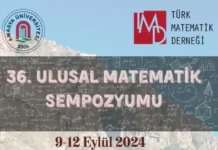

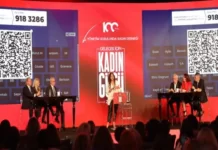

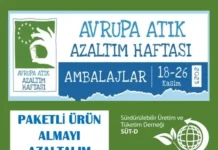

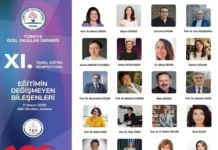

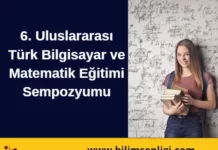







Nice post. I learn something new and challenging on websites I stumbleupon on a
daily basis. It will always be helpful to read through content from other authors and practice a
little something from other websites.
It’s amazing to pay a visit this web page and reading the views of all colleagues concerning this paragraph, while I am also zealous of getting know-how.